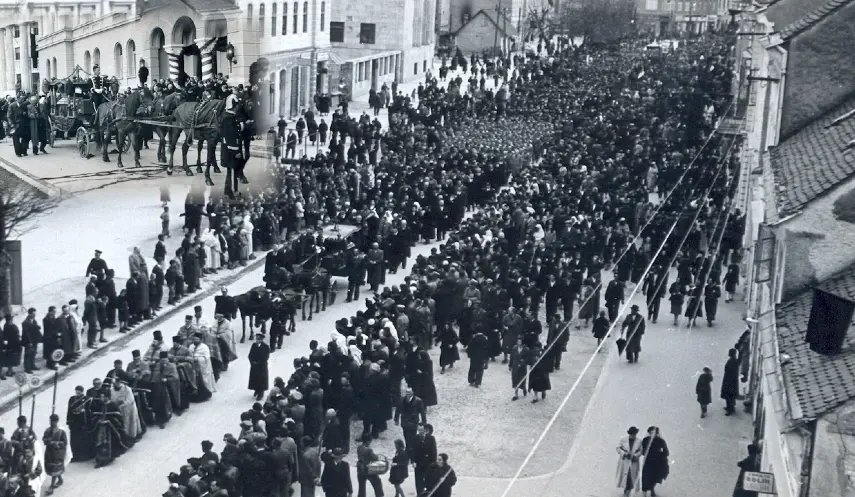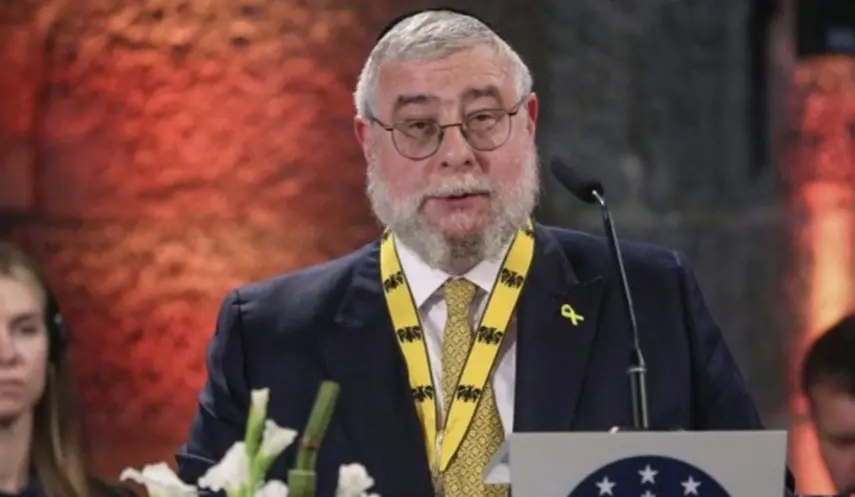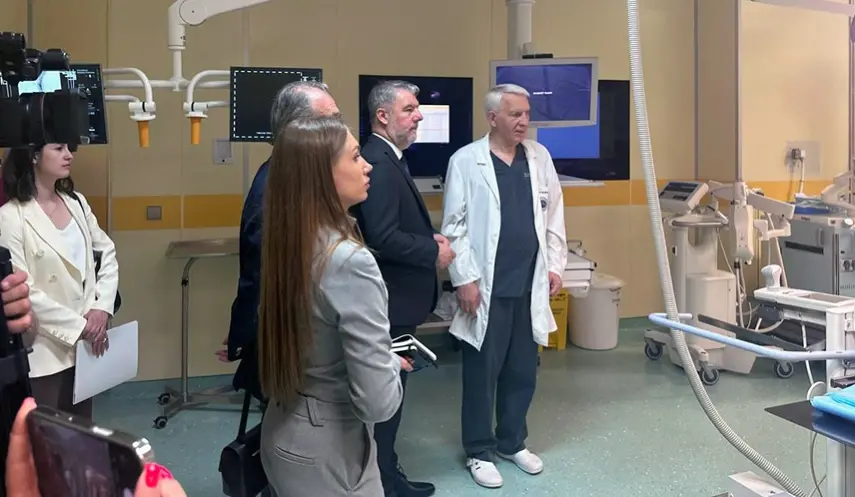FATEFUL DECISIONS MADE BEHIND CLOSED GATEWAYS
Republika Srpska - Banja Luka - sights /4/
06/05/2025
10:00

BANJA LUKA, JUNE 5 /SRNA/ - Behind the closed doors of Banski Dvor / the Ban's Palace/ in Banja Luka, whose front facade was adorned with a double-headed eagle throughout its long existence, while the Croatian "chessboard" and a communist five-pointed star painted red spoiled it, life went on - fateful decisions were made, glamorous balls were organized, but also confidential information was exchanged, points out Nadežda Lazarević-Kovačević, the only granddaughter of Ban Todor Lazarević.
"But there was also the sound of children's laughter, intoxicating smells wafted from the kitchen, and sometimes muffled sobs echoed through its hallways," she says.
Nadežda Lazarević-Kovačević breathed life into factography and history, weaving her own memories and those of old Banja Luka families into the documentary-animated series "Like a Beautiful Dream" and the book "DirižaBL".
The most glamorous parties were organized in the luxurious reception hall, which were only accessible by invitation.
Nada Lazarević went with her husband, Ban Todor Lazarević /1887–1938/, from ball to ball, from party to party. She actively participated in the work of humanitarian societies, thus relieving her husband of numerous social obligations without which the life of a successful politician is unthinkable.
Working up to 16 hours a day, and somewhat exhausted from a lingering flu, on March 13, 1938, the Ban woke up with a severe toothache and decided to visit the dentist immediately – a fateful decision. His wife tried to prevent his departure, but to no avail.
His only son, Predrag Gugo Lazarević, later a Serbian writer, literary theorist and poet, remembered that day well until the end of his life.
"Mom felt, as if she had a premonition of something, and called the doctor to tell him not to touch anything. But the doctor said: `The Ban is from Krajina, the tooth has already been extracted.` By the time he got across the road, again by car, to the Banski dvor, he was already swollen. So, the process went very quickly and after one or two days he had to lie down," said Predrag Lazarević, who saw his father for the last time on March 21, 1938.
Like a house of cards, a "beautiful dream" collapsed, and Nada, overcome with pain, continued her life in a very withdrawn manner, completely dedicated to caring for her only son.
On that Wednesday, March 23, the day of the funeral of the only Ban of Krajina, Todor Lazarević, the city was literally shrouded in black, the columns at the entrance to the Ban's Palace were wrapped in black ribbons.
While military music intoned the funeral march, an airplane of the Aero Club Naša Krila /Our Wings/ circled above the cemetery, wearing black ribbons and paying its last respects to its long-time president.
The coffin was covered with more than a hundred wreaths, and the memorial service for the repose of the soul was served by Metropolitan Vasilije, accompanied by 20 priests, and the Jedinstvo Choir /Unity/ sang under the baton of Vlado Milošević.
It sounds incredible, but the Vrbas Banate was without a Ban for the next three years. The Ban's function was formally performed by a deputy because the Kingdom of Yugoslavia was an orderly state in which everything seemed to function flawlessly. The new Ban, Nikola Stojanović, was appointed only after the turbulent events of March 1941. He spent only two days in Banja Luka and immediately after April 6 returned to the bombed capital - Belgrade. /to be continued/

GOLDSCHMIDT: STILL WAITING FOR APOLOGY FROM BiH AUTHORITIES

POSSIBLE COOPERATION BETWEEN ALMAZOV RESEARCH CENTRE AND UNIVERSITY CLINICAL CENTRE

SARAJEVO "TROIKA" WANTS TO WEAKEN SNSD - THE BIGGEST OBSTACLE TO UNITARY BiH



